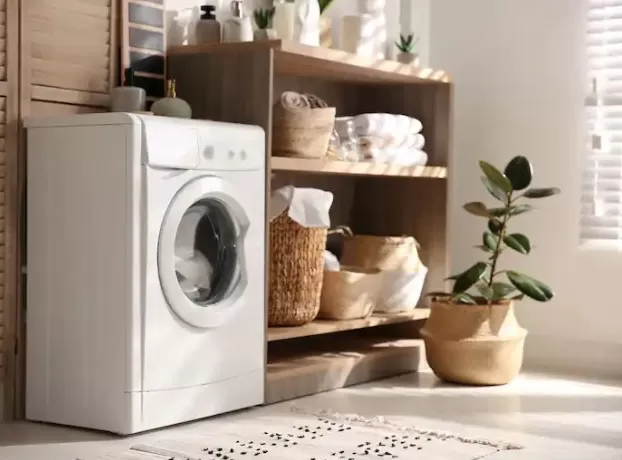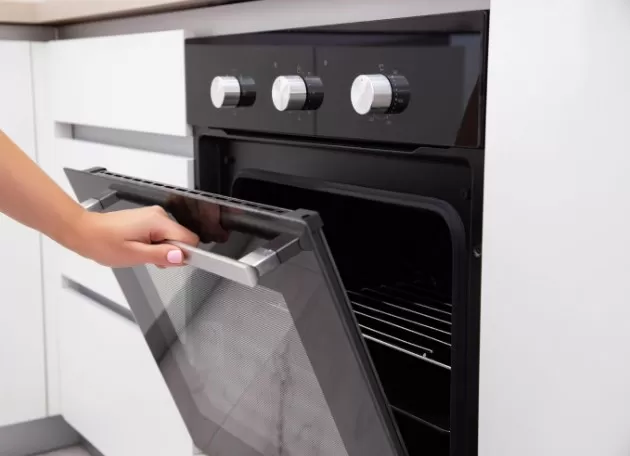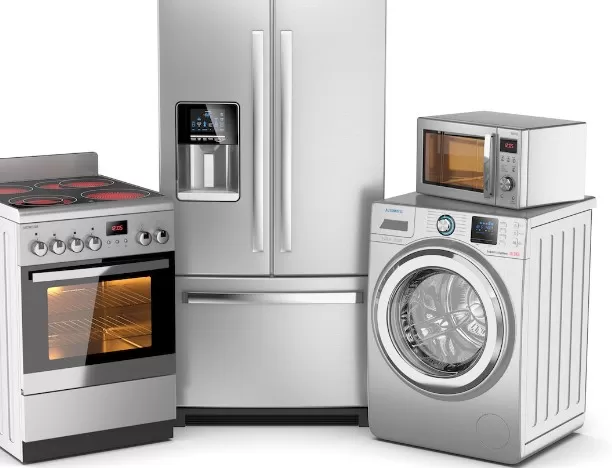The Lifespan of Home Appliances: Averages Around 11 Years. When it comes to major home appliances like refrigerators and washing machines, it’s natural to hope they last a lifetime. However, these significant investments are not immune to the passage of time.
While repairs can often prolong their lifespan, it’s crucial to be aware of their finite durability. These appliances form the foundation of our household routines, so understanding their expected lifespan is essential to avoid unexpected surprises when faced with repair or replacement.
Fortunately, most home appliances do have average lifespans, and there are measures you can take to extend their longevity. By being proactive, you can maximize the durability of these costly machines.
Average Durability of Major Home Appliances

Based on data sourced from the Association of Home Appliance Manufacturers, it has been determined that the average lifespan of major home appliances ranges from 10.
5 to 11. 5 years.
This includes common appliances such as dishwashers (11. 4 years), refrigerators and freezers (11.
5 years), washers and dryers (11 years), and ovens, range hoods, and stoves (10. 5 years).
Understanding these average lifespans can help homeowners anticipate when their appliances may require maintenance or replacement.
It is important to note that individual usage patterns, maintenance practices, and product quality can influence the lifespan of each appliance. By implementing proper care and maintenance, it is possible to extend the longevity of these essential household machines.
Maximizing Appliance Longevity: Tips for Extending Lifespan

To make your major appliances last longer than the average lifespan, consider implementing the following practices:.
Regular Maintenance: Follow the manufacturer’s maintenance recommendations and schedule regular servicing.
This includes cleaning filters, coils, and vents, as well as checking and replacing any worn-out parts.
Proper Usage: Use your appliances according to their intended purpose and avoid overloading them.
Follow recommended load capacities and temperature settings to prevent unnecessary strain on the machines.
Cleaning and Care: Keep your appliances clean and free from debris.
Wipe surfaces regularly, remove food particles from dishwasher filters, and clean lint traps in dryers. This helps prevent clogs and improves performance.
Balanced Loads: Distribute the load evenly when using your washer or dryer.
Uneven loads can cause excessive vibration and strain on the machines.
Energy Efficiency: Opt for energy-efficient models that are designed to consume less power.
This not only saves on utility bills but also reduces wear and tear on the appliances.
Avoid Overworking: Give your appliances periodic breaks, especially for those that run continuously, such as refrigerators or freezers.
This allows them to rest and reduces the risk of overheating.
Address Issues Promptly: If you notice any unusual noises, leaks, or malfunctions, address them promptly.
Ignoring problems can lead to more significant damage and shorten the lifespan of your appliances.
Proper Dishwasher Care: Tips for Long-Lasting Performance

Maintaining your dishwasher in the right way ensures optimal performance and prolongs its lifespan.
Bree Lemmen, kitchen brand manager for Whirlpool, provides the following recommendations:.
Cleaning Frequency: Clean your dishwasher approximately every three to six months, considering factors such as usage frequency and whether you scrape your plates before loading.
Adjust the cleaning frequency accordingly.
Filter Maintenance: If your dishwasher has a filter, regular cleaning is essential.
Use vinegar and baking soda or a dishwasher-specific cleaner to remove buildup and debris from the filter. Refer to your dishwasher’s manual for specific instructions.
Interior Cleaning: Wipe down the interior of your dishwasher regularly to remove any residue or food particles.
Pay attention to areas prone to buildup, such as the door edges, racks, and spray arms. Use a soft cloth or sponge and mild detergent.
Run Empty Cycles: Occasionally, run empty cycles with a dishwasher cleaner or a cup of vinegar placed on the top rack.
This helps remove accumulated grease, soap scum, and odors, maintaining the cleanliness of the dishwasher.
Proper Loading: Load your dishwasher properly, following the manufacturer’s guidelines.
Avoid overcrowding and ensure that dishes do not block the spray arms, allowing water and detergent to circulate effectively.
By implementing these dishwasher care practices, you can keep your appliance operating at peak performance, minimize potential issues, and extend its lifespan.
A well-maintained dishwasher provides efficient and effective cleaning for your dishes, making your kitchen routine more convenient.
Maintaining Your Refrigerator: Recognizing Signs of Distress and Seeking Professional Assistance
Regularly cleaning and maintaining your refrigerator, including the filter, is crucial for optimal performance.
However, it’s equally important to be aware of specific indications of distress and to promptly contact professionals when necessary. Bree Lemmen, kitchen brand manager for Whirlpool, offers valuable insights:.
Unusual Noises: If your refrigerator starts making loud or unusual noises that persist despite cleaning or minor troubleshooting, it may indicate an underlying issue that requires professional attention.
Inadequate Cooling: If your refrigerator fails to maintain the desired temperature or if you notice inconsistent cooling, it’s a sign that something is amiss.
This issue could impact food storage and safety, necessitating professional assistance.
Ice Maker Problems: A malfunctioning ice maker, such as not producing ice or experiencing frequent blockages, can be indicative of underlying mechanical or component issues that may require professional assessment.
While these signs may suggest the need for a refrigerator replacement, Lemmen emphasizes the importance of seeking professional help before making any decisions.
Consulting with experts allows for accurate diagnosis and potential repairs, which can extend the lifespan of your appliance and save you from unnecessary expenses.
Extending Your Freezer\’s Lifespan: Efficiency and Maintenance

To prolong the lifespan of your freezer and promote its efficient operation, Bree Lemmen, kitchen brand manager for Whirlpool, offers valuable recommendations:.
Regular Cleaning: Regularly clean your freezer, including the interior and air vents, to prevent dust and debris accumulation.
This promotes proper airflow and reduces the workload on the freezer’s cooling system.
Frost Build-Up: Check for and promptly address any frost build-up in your freezer.
Excessive frost can hinder airflow and reduce the freezer’s cooling efficiency. Follow the manufacturer’s instructions to defrost your freezer when necessary.
Avoid Overfilling: Be mindful not to overfill your freezer beyond its recommended capacity.
Overcrowding restricts proper air circulation and places additional strain on the freezer’s cooling mechanism. Maintain a balance between storage needs and ensuring adequate airflow.
Organize with Care: Arrange items in your freezer with thoughtfulness, keeping similar foods together and using labeled containers or bins when applicable.
This allows for easy access and prevents the need to dig through the freezer, minimizing the time the door remains open.
By implementing these practices, you can reduce the workload on your freezer, enhance its efficiency, and extend its lifespan.
A well-maintained freezer not only keeps your food properly frozen but also contributes to energy savings and a more organized kitchen.
Caring for Your Washer: Enhancing Longevity through Regular Cleaning
To ensure the longevity and optimal performance of your washer, Morgan LaLonde, laundry brand manager for Whirlpool, recommends regular cleaning and maintenance:.
Cleaning Frequency: Clean your washing machine approximately once a month or every 30 cycles to prevent the accumulation of soils and build-up.
This helps maintain the washer’s efficiency and prevents deterioration.
Preventive Measures: Take preventive steps to minimize dirt and residue build-up in your washer.
Avoid overloading the machine, use the appropriate amount of detergent, and promptly remove damp laundry after the wash cycle.
Cleaning Cycle: Some washers have a dedicated cleaning cycle or self-cleaning function.
Follow the manufacturer’s instructions to run this cycle, utilizing specialized cleaning agents if recommended.
Exterior and Dispenser Cleaning: Wipe down the exterior of your washer regularly using a damp cloth.
Additionally, clean the detergent dispenser and other removable parts, such as the fabric softener dispenser, to prevent clogs and ensure proper functioning.
Door and Gasket Maintenance: Check the Door Seal, or gasket, for any debris or residue and wipe it clean regularly.
Ensure that the gasket remains intact and free from mold or mildew by keeping it dry after each use.
By incorporating these practices into your washing machine maintenance routine, you can extend its lifespan and maintain its efficiency.
A well-maintained washer provides reliable cleaning performance, contributing to fresh and clean laundry.
*The information is for reference only.